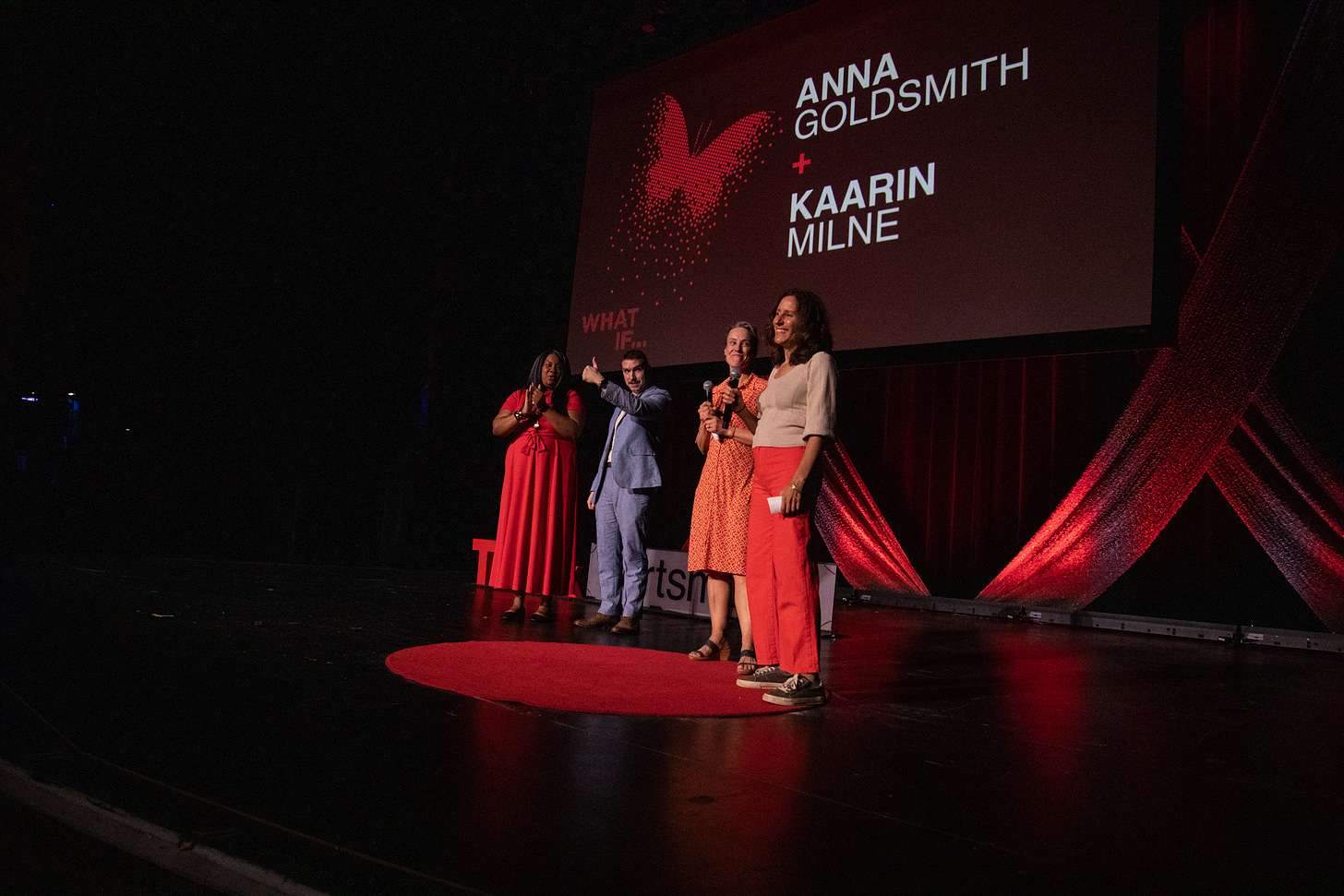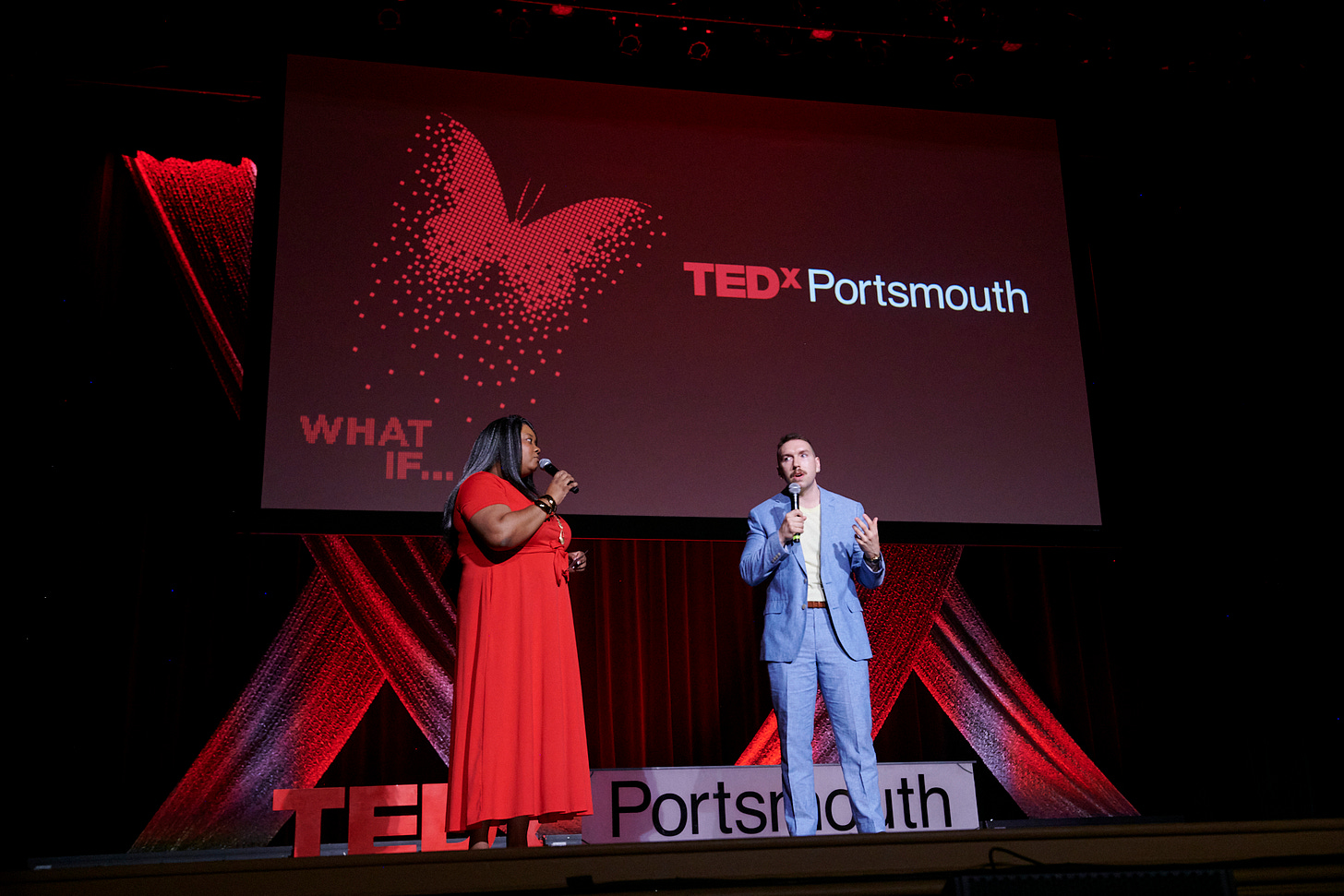TED
What if... people are smart?
You and your co-host stand just offstage, waiting for your cue. She stuns in a radiant red dress. Nearly a thousand people fill the theater. The crew drops the house lights. Your heart pounds. The suit you rushed to get tailored two days ago already clings too tight. A calm, experienced backstage tech nods and hands you the mic.
Then something wild flashes through your mind.
You lean over to your co-host and whisper “Hold this for a sec,” as you hand her your mic.
Before she can ask why, you rush into the light. The song you chose yesterday blares through the speakers, though you can’t hear it over the roar of the crowd. You launch across the stage with a frenzied somersault. The clapping drowns everything. The lights blind you. You can’t see a single face.
But somehow, this moment—wild, joyful, risky—feels exactly right.
Several weeks ago, my friend Latonya Wallace1 and I co-hosted TEDx Portsmouth— a volunteer run all-day event where the greater New Hampshire seacoast comes together to explore big ideas—ranging from science and creativity to community and innovation.


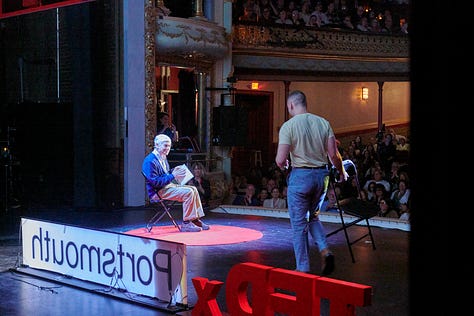

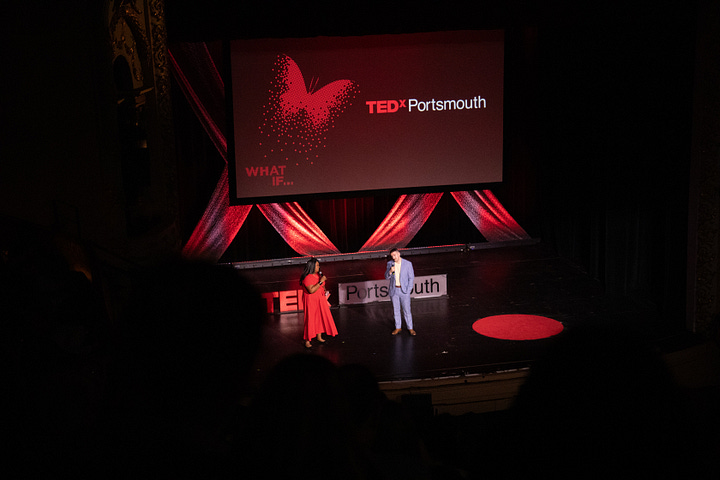
It was tons of fun, obviously, but I love TEDx Portsmouth because it exemplifies something deeper: the belief that everyday people have extraordinary ideas worth sharing.
We all know TED Talks. They’re so culturally iconic, they’ve basically become a meme—when someone hijacks a dinner conversation to dive into their favorite obsession, they often joke, “thanks for coming to my TED Talk.” The format gets teased for being formulaic, but that’s just the shadow cast by massive success and the fact that we've all seen a lot of TED Talks.
TED wasn’t always a global juggernaut of inspiration. Long before it became shorthand for “ideas worth spreading,” before it made its way to New Hampshire, and before I ever stepped up on stage to help introduce 14 remarkable people, TED itself was just an idea—a failed one, in fact.
A series of provocative, radical shifts in how people grow brands and view one another fueled TED’s journey from failed conference to household name. We take all this for granted, but here’s why we shouldn’t.
Richard Saul Wurman launched the first TED conference in 1984, inspired by the convergence of technology, entertainment, and design. The event showcased cutting-edge tech like compact discs and e-books, but it flopped financially. Six years later, the conference returned with an exclusive invite-only audience.
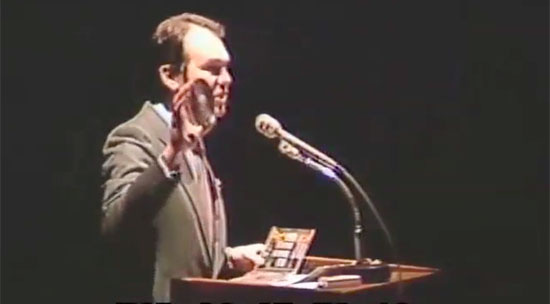
It seemed TED had found its moment, attracting a devoted audience of scientists, artists, businesspeople, and thinkers. When media entrepreneur Chris Anderson took over in 2001, he transformed TED into a nonprofit but kept the main conference small and invite-only. As he looked for ways to digitally expand its reach—experimenting with TV and other media—nothing quite landed.
Then, as Anderson later shared in an interview with Bill Burke2 on the Blue Sky Podcast, everything changed.
“This technology came along— online video, which allowed us to contemplate just giving it away online. There was a big debate internally because, if you do that, aren’t you killing your conference?”
It’s hard to overstate how radical this choice was. Imagine spending years trying and failing to build your idea. Then finally, you find traction. You nurture it for over a decade, build a devoted following around exclusivity and limited access… and then announce you’re giving it all away to everyone, everywhere, twenty-four hours a day, forever, for free. In doing so, you break nearly every rule of business, marketing, and brand control.
The thing is, it worked spectacularly. As Anderson explains:
“Far from killing the conference, it enhanced the conference, because these talks went viral. Suddenly, a lot of people around the world wanted to be part of TED.”
TED posted its first talks online in June 2006 and quickly hit over a million views. By 2007, TED redesigned its website and made the talks free to anyone, anywhere.

Even if TED had stopped there, most people would still call it an astonishing success—a massive gamble that required a quantum leap of trust and paid off in ways the team never could have imagined.
The thing is that just two years after that, they did it again.
Enter TEDx. As Anderson tells it:
TEDx is a free license that allows anyone anywhere to put on a TED like event. There are some rules, but there’s no money involved… The fear was that we would lose control of everything, and that awful things would be done because we don’t control the speakers who are booked, etc. A lot of people advised against it, saying you can’t mess with your brand in this way. But it turns out that when you give away your brand in certain circumstances, amazing things can happen. A fear years later, suddenly there were 3,000 TEDx events being held around the world, generating a billion online views.
…10 people out of the 200 who work at TED oversee this [TEDx}. They’re overseeing 65,000+ volunteers, who are out there working on our behalf, doing events that we never could have imagined. To have something on that scale, it’s only possible through the magic of infectious generosity. We were stunned with what people did with it. They gave us so much back. They gave the world so much back.
By 2018, the craze reached all the way to New Hampshire, and over the next 7 years, a brilliant team of volunteers built TEDx Portsmouth into a regional sensation.
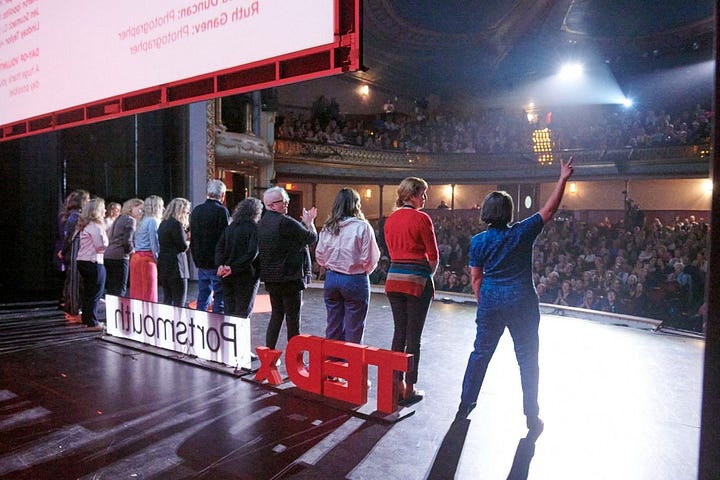

All of this happened during the same era when many warned that social media was eroding our empathy, intellect, attention spans, and driving up suicide rates.3 While that story may hold some truth, another unfolded in parallel: in every country with the capacity, thousands of people self organized to build what were essentially modern enlightenment salons. Millions attended. Billions watched.
I like TED for this reason—its growth challenges the modern narrative of cultural decline and stupidity.
Similarly, I like TEDx Portsmouth because it challenges negative narratives about New Hampshire.
In my Yankee Dynamism piece, I wrote about how New Hampshire is often underestimated. Too often the Granite State is either dismissed as a political oddity4 or defined solely by its challenges. All my life I’ve heard it derogatorily called “the armpit of New England”5 or “the South of the North.”6 And yet, year after year, we rank among the best states in the nation for public safety, opportunity, and quality of life.7 To boot, we also have an astonishingly great TEDx event.
TEDx Portsmouth is not only the biggest TEDx event in all of New England—it is one of the best in the entire world. TED Global (the mothership brand with ~26 million followers) regularly features talks from TEDx Portsmouth for their storytelling power and broad resonance.
Some talks from TEDx Portsmouth have surpassed a million views, and 20–30% of our speakers regularly land in the top 1% of TEDx videos worldwide. When I asked lead organizers Anna Goldsmith and Kaarin Milne8 to put that in perspective, they told me: “Out of more than 3,500 TEDx events globally, we consistently rank in the top 50.”
Co-hosting this event gave me a clearer view of what makes TEDx Portsmouth special (you might call this the secret sauce9). The team doesn’t just seek polished professionals or practiced speakers—they deliberately look for people who might never imagine themselves on stage.
As Executive Producer Anna Goldsmith says, “Our best speakers are often the ones who don’t think they could ever give a TED Talk. They’re modest—out there changing the world, but convinced they’re nothing special.”
And yet, they are.
That’s the spirit TEDxPortsmouth champions: a deep trust in people’s intelligence and potential. The assertion that brilliance isn’t rare—it’s just rarely handed a mic.
That belief echoes a (strangely) provocative idea that I think deserves more airtime: most people are smart.10
It might sound naive in an age of conspiracy theories, misinformation, and culture wars, but it’s a view championed by cognitive scientist Steven Pinker in his book Rationality: What It Is, Why It Seems Scarce, Why It Matters.11 Pinker’s argument is clear: humans are capable of extraordinary rational thought. We build airplanes, write symphonies, design complex systems, and solve everyday problems with grace and ingenuity. But when it comes to politics, ideology, or identity, we often leave those tools behind. It’s not because we’re unintelligent, but because the systems we’re in reward outrage over understanding, and tribalism over truth.
His point isn’t that people are dumb. It’s that most of us are trapped in environments that discourage critical thinking and present fear and cynicism as sophistication.12
When the right context exists though, our brilliance can shine. A TEDx stage is one such place. A strong community can be, too. So can a podcast, a classroom, a casual conversation, or wherever we create space for clarity, empathy, and nuance.
I care deeply about this idea because believing in the capabilities of your fellow humans is a prerequisite for progress. It underpins everything from innovation to the democratic ideal of self-government.
It’s also at the core of what TED is.
To make a TED joke at dinner, you first had to learn about TED.13 Probably on the internet, itself an unprecedented, sprawling web of human culture, curiosity, and commerce.
But the internet does not grow on trees. It had to be built. Servers, protocols, fiber optics, packet switching—these were all designed and refined over decades. That global infrastructure made TED talks accessible, searchable, and eventually, meme-able.
Still, TED talks as we know them wouldn’t exist without video—and video couldn’t stream until computers became fast enough to compress, store, and deliver it. That leap took years of breakthroughs in processing power. Engineers turned grains of sand into semiconductors that could think, switching on and off billions of times per second, moving logic at the speed of light, and exponentially shrinking the limits of silicon to the microscopic scale.
The very idea of video itself stretches back to the daguerreotype, an early 19th-century process that captured still images on polished silver plates. From there, we moved to motion. Then film. Then tape. Then digital. Each step layered on the last, made possible by someone asking, “how can we make this better?”
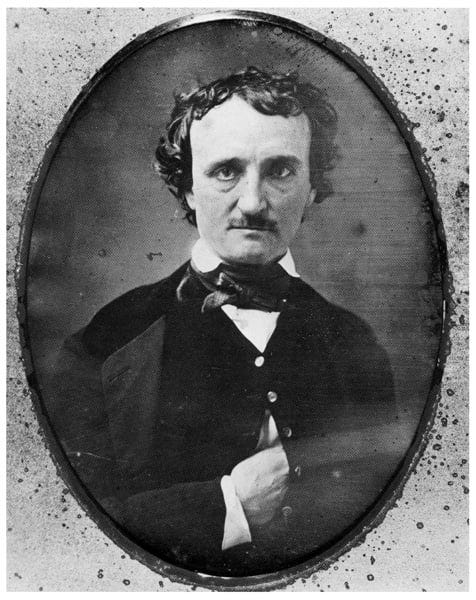
Consider as well that none of this works without abundant and accessible energy—enough to power data centers, laptops, satellites, and smartphones.
To get there, humans first dug for coal, then pumped oil and gas. We split atoms. We captured sunlight. We harnessed the wind. One step after another, we moved toward cleaner, more elegant forms of power. In many ways, the story of human progress is the story of increasing energy abundance and how we extended sound, signal, and connectivity to every corner of the globe.14
But even abundant energy and global telecommunications aren’t enough to make a TED talk.
For the talks to spread, something else had to be built: the legal and cultural foundations of free thought and free speech—foundations that are, in fact, remarkably rare in human history. Our digital tornado of words, voices, and memes only works because generations before us made the deliberate choice to protect open expression. The right to think differently. To disagree in public. To say something new without fear of imprisonment or exile.
Without these freedoms, without energy, without innovation, without interconnectedness—it all collapses. There is no TED. No ideas worth spreading. Just silence and darkness.
And even with all of these layered blessings, for TED to reach you, it still had to matter to someone else first. Perhaps the talk you saw first resonated widely in a classroom in Jakarta, where it landed because it struck a chord with a grandmother in Lisbon, who watched it because her grandson in Los Angeles was curious after hearing about it from someone inspired in Lima.
Free by nature, ideas pass from person to person, screen to screen, mind to mind. Their virality and appeal exists not in straight lines, but in beautiful, unpredictable, networked spirals.
This is TED at its best: a swirling convergence of humans and their creativity. Proof that the compound interest of curiosity, cooperation, and innovation can lead us to stranger, more joyful futures.
We are the technology, design, and entertainment—it’s not magic. It’s us!
Granite Goodness is an explorative celebration of these very themes.15 At its heart, it’s a bet on human flourishing, asking what if we told better stories about what’s possible? What if we chose to see people not through the lens of what’s broken, but through the lens of what they’re building?
It’s a conviction that people can make things better—and often are. What if we talked more about that?
As it happens, What If was defining theme of TEDxPortsmouth this year. Literally:
22 days ago, I stood on stage in front of nearly a thousand people, flanked by my radiant and brilliant friend. Together, along with fourteen extraordinary humans (and one dog), we were challenged by the following questions:
What if…
We saw refugees for their potential—not just their perceived cost? (Clement Nsenga Kigugu)
Prisons became pipelines for talent and purpose? (Margo Walsh)
Seaweed helped us solve some of our biggest challenges? (Inga Potter)
Emotional intelligence shaped how we communicate and connect? (Katelyn Carey)
The worst things that happen to us revealed some of the best? (Freddy Petrone)
We held deeper empathy and respect for the immigrant journey? (Elsa Sanlara)
We acknowledged our baggage—and still chose to live fully? (Frankie Ritter)
We chose to read more to children, even in an age of constant distraction? (Dane Peters)
Therapy dogs were embraced for their full healing potential? (Pamela Pearson)
We looked beyond the frame to discover the deeper story behind a photograph? (Tony Baldasaro)
Foster parenting was honored not as a last resort—but as a vital act of love? (Hilary Crowley)
We studied world-class teams not just for wins, but for wisdom? (Vanessa Druskat)
Teachers were trusted, respected, and given more room to breathe? (Sandi Herrera)
Drag was seen through a different lens—one of joy, artistry, and liberation? (Journee Lafond)
Reflecting on this day, these people, and this opportunity, I find myself asking:
What if we treated people like they’re smart and capable—because they are?
What if we chose optimism over cynicism? Curiosity over judgment? Possibility over despair?
What if, by choosing to trust more, love more, and widen our horizons, we stopped asking what we have to lose—and started asking what we have to gain?
TED asked this question nearly 20 years ago. Again and again, they chose to radically believe in the capacity, creativity, and abilities of other people, and gained the world in the process. This belief, echoed across time, is what brought me to that stage.
It also brought Latonya, Anna, Kaarin, Tony, Katelyn, Hilary, Vanessa, Sandi, Clement, Journee, Pamela (and Kismet!), Dane, Freddy, Inga, Elsa, Margo, Frankie, the amazing team at TEDx Portsmouth, The Music Hall, and all of our sponsors and partners together for the day of a lifetime, full of a simple lesson I’ll never forget:
What if?
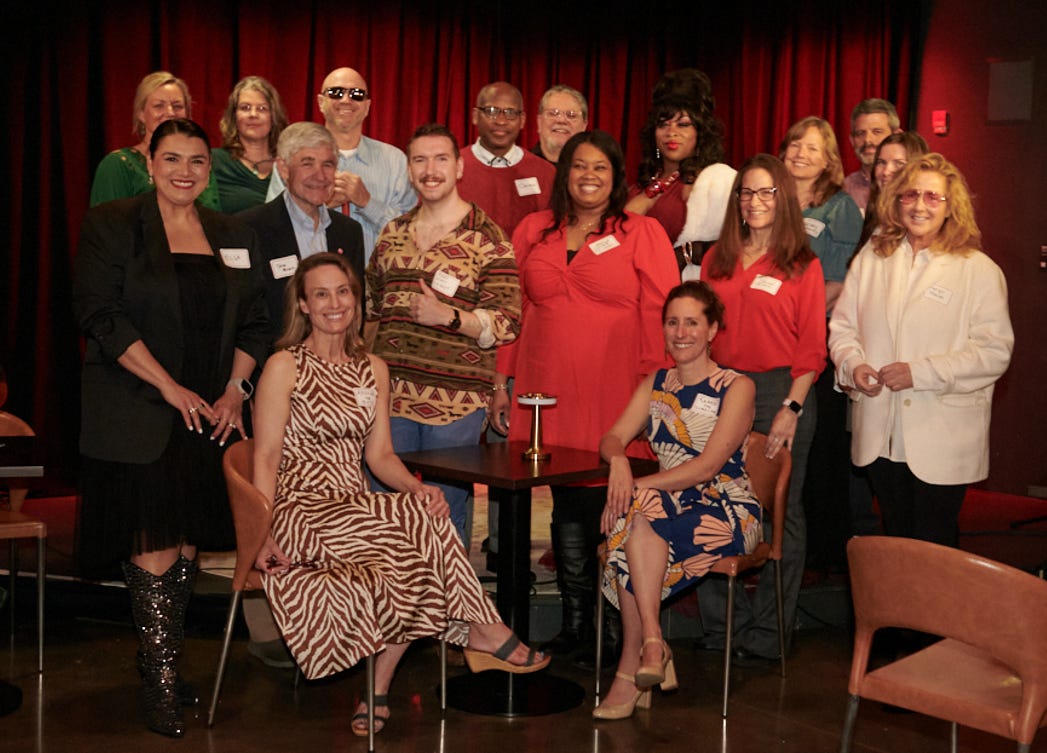
I crossed paths with a lot of wonderful people during this process, but Latonya is my favorite. Sorry everyone else.
Suicide rates are actually down 29% since 2000. More work to do obviously, but this is an astonishingly great thing. As always thanks Fix The News for this insight.
As it turns out, “Live Free or Die” is an internationally known motto— the Ukrainians and many others across the democratic world are actually familiar with the Granite State. I was told this personally two days ago by Senator Maggie Hassan when I had the chance to briefly interview her for a Granite Goodness episode (forthcoming!)
I don’t really believe in IQ, but one review of common proxies for intelligence (educational attainment, graduation rates, literacy rates, SAT scores, etc.) found NH to be the “smartest state in the country.”
By the way, Mississippi has good schools now. Thank you Tim Daly at The Education Daly for your writing on this!
Perhaps the case here is as many modern philosphers have stated: “They hate us cuz they ain’t us.”
For anyone who attended, I did morph this into a belabored metaphor about sausage on stage. Sorry. The audience reaction was mixed. According to my wife, after seeing me prattle on about “the special sausage of TEDx” the woman seated next to her muttered to herself “So weird.” Latonya saved me by transitioning to the next speaker.
Pinker also wrote Enlightenment Now, one of the foundational tomes of the progress movement! Thank you Jason at The Roots of Progress for this piece and all of your other work.
Cynicism sounds smart, but often isn’t. To see more of what I mean, check out the incredible site Pessimists Archive.
I do absolutely want to point out that one of my great heroes, Angus Hervey of Fix the News (who helped inspire Granite Goodness) is a regular speaker at TED Global. His talk this year (and every year) is not one to miss.




